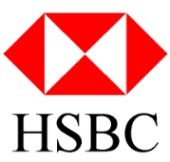أصدرت منظمة الشهود العالمية بيان عن تسوية بين بنك HSBC وجهات قانوينة أمريكية أمس 11 ديسمبر 2012rn
rnrnrnأعلن بموجبه أكبر بنك في أوروبا، HSBC، عن توصله الى اتفاق مبدئي مع (مكتب المدعي العام في نيويورك ، ومجلس الاحتياطي الاتحادي، و وزارة الخزانة مكتب مراقبة الأصول الأجنبية، ومكتب مراقب العملة ومكافحة الجرائم المالية ). سيقوم بموجبه البنك بدفع 1.9 مليار دولار (1.2 بليون جنية استرليني) لتسوية مزاعم مشاركته في غسيل أموال لعصابات المخدرات والإرهابيين ودول منبوذة.و خلال الفترة ذاتها تقريبا فشل بنك HSBC من التحقق مما إذا كانت المخدرات شحنت من المكسيك إلى الولايات المتحدة وتشير المعلومات الى توفي 47،000 شخص على أيدي مهربي المخدرات المكسيكيين.rnrnتفاصيل البيان باللغة الآنجليزية مرفق لمن يريد التفاصيل.rnrnrnوقد أعلن بنك HSBC على موقعه الأليكتروني http://www.hsbc.com/1/2/newsroom/news/2012/hsbc-announces-settlements-with-authorities في بيان رسمي عن توصله الى هذا الاتفاق مع الجهات الرسمية في حكومة الولايات المتحدة الأمريكية بدفع مبلغ 1.921 مليار دولار عن تلك الانحرافات.rnrnولازال البنك يواجه تحقيقات مع حكومة بريطانيا لم يتم التوصل الى اتفاق بشأنها.rnrnتلخيص للعربية : شرف محسن الموسويrnrnفيما يلي نص البيان الأصلي باللغة الإنجليزية
rnrnSenior HSBC bankers need to face jail for their bank’s role in laundering drugs money; fining the bank won’t workrn11 December 2012rnToday, Europe’s largest bank, HSBC, announced that it will pay $1.9 billion (£1.2 billion) to settle allegations that it laundered money for drugs cartels, terrorists and pariah states. During approximately the same period that HSBC failed to check whether the dollars it was shipping from Mexico to the US were drugs money, 47,000 people died at the hands of Mexican drugs traffickers.rn“Fines alone are not going to change banks’ behaviour: the chances of being caught are relatively small and the potential profits from accepting dodgy clients are too big. Fines are seen as a cost of doing business,” said Rosie Sharpe, campaigner at Global Witness. rn“Instead, regulators should hold senior bankers legally responsible for their banks’ money laundering performance. At the very least, senior bankers should be prevented from working in the industry, akin to the way in which doctors can be struck off. Bonuses should be clawed back, and, in the most serious cases, senior bankers should face jail,” said Sharpe. rnAccording to the chair of the US Senate Subcommittee, HSBC’s culture was ‘pervasively polluted’. The number of drugs cartels in Mexico makes it a high risk for money laundering. HSBC Mexico had high risk clients such as money remitters and offered high risk products such as dollar accounts in the Cayman Islands. Despite this, HSBC US treated its Mexican affiliate as low risk. The result was that HSBC’s Mexican operations moved $7bn in physical cash into the US between 2007 and 2008. Instead of prosecuting senior bankers, however, the US Department of Justice has entered into a ‘deferred prosecution agreement’ with the bank, in which the bank is essentially granted immunity from prosecution in exchange for doing what they should have been doing all along. “If you get caught with your hand in the till you go to jail, but if you’re a big bank and you’re caught breaking the law, it seems that all that happens is you’re fined and told you’ll go to jail if you do it again,” said Sharpe. rnYesterday the UK’s Home Affairs Select Committee said that fines against banks that aided money laundering and drugs trafficking were not enough. The Committee recommended personal, criminal liability for those who hold the most senior positions in banks that are found to have been involved in money laundering. rnAs well as prosecuting senior HSBC bankers, bonuses should be clawed back. Lord Green was appointed HSBC chief executive in 2003 and chairman in 2006, and is now the UK Trade Minister. “We estimate that Lord Green pocketed more than £25 million in bonuses and shares during his time at HSBC, despite the fact that the bank’s own criteria for awarding bonuses is meant to take into account adherence to ethical standards; he should return this money,” said Sharpe. rnHSBC accepted responsibility for its past mistakes and stated that it had comprehensively changed its approach to anti-money laundering compliance. The bank will be monitored by the Department of Justice for the five year term of the agreement. rn/Endsrnrn

